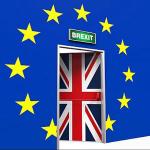latest Reviews and articles
CHAMPAGNE DEUTZ – THE QUIET PLAYER ON THE WORLD STAGE - Within the UK Deutz Champagne is considered one of Champagnes...
Where to celebrate Bastille Day in London - Many restaurants and bars in London have chosen to embrace...
How do you chose a dentist in London? - There are so many dentists in London. How do I choose?
The Brioche de Noel Pasquier arrives in London at last - In this festive season, there will be many food options to enjoy...
MAGAZINE
-
 Children
Children
-
 Culture
Culture
-
 Decoration
Decoration
-
 Economy/Politics
Economy/Politics
-
 Education
Education
-
 Fashion
Fashion
-
 Food / Wine
Food / Wine
-
 Health
Health
-
 Holidays
Holidays
-
 Jobs
Jobs
-
 Law
Law
-
 Life and Style
Life and Style
-
 Property
Property
-
 Sport
Sport
Device converter
Weather
Classified ads
- House to Rent - Barn Hill - Near Lycee
- Tax Return MN | Prudent Accountants
- 3 bedroom flat to rent
- Football agent looking for talented players
Recently added
articles > Economy/Politics events

Brexit, a European earthquake
This is it. The United Kingdom is leaving the European Union. A decision taken on 23 June, with 51.9% of votes for the “Leave” camp and 48.1% to remain in the EU. A result that will have a significant impact on millions of British citizens, but also on the whole European continent. A record turnout was achieved with 72.2% of registered voters participating. The fate of a country depended on the ballots of voters who will not get a second chance.
The situation on 24 June
About 60% of Londoners voted Remain, as well as 62% of Scots and 55.7% of the people of Northern Ireland. The little territory of Gibraltar, which is linked to Spain, voted for Remain with 95.9%. And almost the rest of the United Kingdom has decided to reject the European Union.

A few hours after the results were released, the United Kingdom was already changing. Pro-EU Prime Minister David Cameron announced that he will resign in time for the next Conservative Conference in October. "A negotiation with the European Union will need to begin under a new prime minister, and I think it is right that the new prime minister takes the decision about when to trigger Article 50 [of the Lisbon Treaty] and start the formal and legal process of leaving the E.U."
The pound plunged to its lowest level since 1985. At 4pm the day after the referendum, Sterling reached €1.22. The Bank of England has tried to reassure the market as its governor Mark Carney said that £250bn of reserve funding can be made available. "Some market and economic volatility can be expected as this process unfolds, but we are well prepared for this," Mark Carney said in a statement. "The Bank of England will not hesitate to take additional measures as and when required, as markets adjust.”

As the results showed it, the UK is now divided in two almost equal parts: the anti-EU and the pro-EU. And the impact of the referendum divides not only the citizens but also the territory. A petition calling for a second referendum has reached more than 3.7 million signatures in three days. After the Scots decision to stay in the United Kingdom in 2014, they could ask for a second independence referendum, which is “highly likely” according to Scotland's first minister Nicola Sturgeon. The republican party of Northern Ireland are calling for the reunification of Ireland. However, Northern Ireland’s first minister Arlene Foster answered that there will be no poll.
When will the UK definitely leave the EU?

before a 2-year deadline
The UK is unlikey to leave the EU before 2018. Article 50 of the Lisbon Treaty allows a country to leave the European Union within a 2-year deadline, as soon as the government invokes it. During this time, the UK will negotiate exit terms with the EU. The agreement must be accepted by a qualified majority of the European Parliament and European Council.
If no agreement is signed in 2018, the deadline can be extended until 2020. And if the UK and the EU still do not agree at this moment, the United Kingdom will be definitely out of the EU and will need to negotiate its relationship with the European countries with the World Trade Organisation (WTO).
David Cameron does not want to invoke Article 50 for now because the United Kingdom wants to know what it can obtain from the EU before starting the process. MPs now need to organise the UK’s policy for when it leaves the European Union and David Cameron’s successor will have the possibility to invoke Article 50 as soon as he/she thinks that the country is ready.
What will be the consequences on expats?
About 350,000 French people live in the UK today, who do not need any visa to travel and work in a member country of the EU. Brexit could change this, even though nothing is sure for the moment. The UK can consider several options. It could find a special agreement with France and other EU countries and negotiate the travelling and working terms for people wanting to cross the Channel. This means the British government could choose with which country they want to establish a privileged relationship. Another hypothesis is that it could close the borders and ask for visas for everyone entering the country. In this case, foreigners who want to work in the UK will be asked for a work permit and a resident card.

Another question arises: what about health insurance? As many as 70,000 of the 200,000 British expats in France are retirees. They depend on the NHS, thanks to European agreements allowing EU expats to receive healthcare in their host country. But closing the UK borders could mean that British citizens living abroad will pay a financial contribution to have the right to be covered by the NHS. The same will apply to French people living in the UK.
Two years of uncertainty have started...



LEAVE A COMMENT